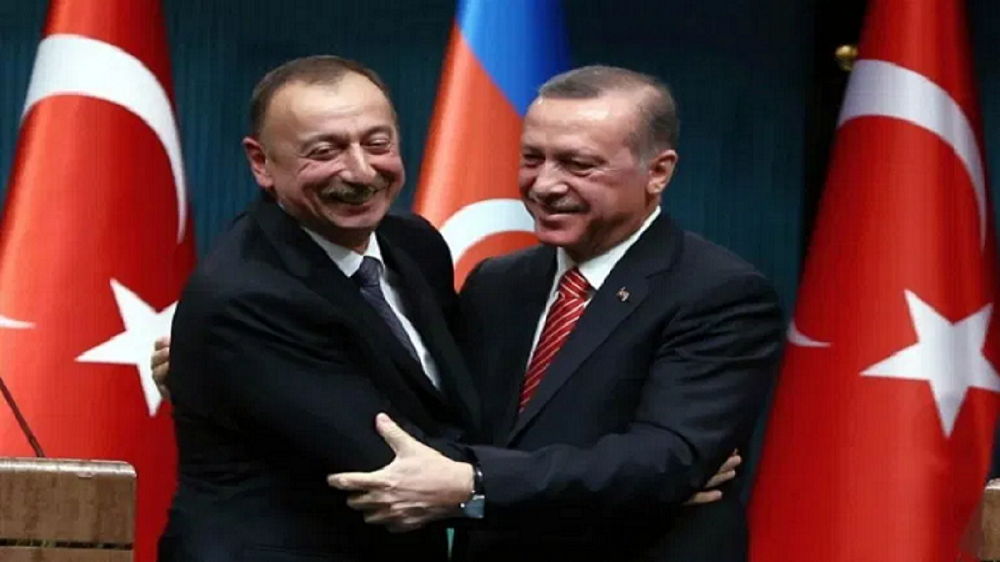
On 9 November 2020, Russia announced that Armenia and Azerbaijan had agreed to a ceasefire and a resolution of their long-standing dispute over the Nagorno-Karabakh province, the Armenian occupied enclave in Azerbaijan. The agreement ended the six-week war between the two countries—their third since the early 1990s—and shifted the existing balance of power in Azerbaijan’s favour.
This outcome is primarily attributable to Azerbaijan’s clear military superiority, the result of a concerted military build-up by Baku over the last decade. While Azerbaijan reportedly received advanced weaponry from Israel, it was Turkish assistance—hardware as well as intelligence support and military advisors—that proved decisive. In particular, Turkish military drones were key to Azerbaijan’s prosecution of the war. Outmatched on the battlefield, Armenia held out hope that Russia would intervene to stop Azeri advances the ground. When that support failed to materialise, and Azeri forces captured the strategically important city of Shusha, Yerevan had no choice but to admit defeat and accept Baku’s terms.
The ceasefire locked both parties’ troops into their positions as of 9 November, meaning that Azerbaijan would continue to hold territory in Nagorno-Karabakh gained in the previous six weeks, while setting a timetable for the withdrawal of Armenian troops from all occupied Azeri territory. The agreement also provided for the deployment of a Russian peacekeeping force of 1,960 troops at several points around Nagorno-Karabakh and along the Lachin corridor, which connects the enclave to Armenia, for a minimum of five years. A joint Russian-Turkish surveillance centre will be established in Azeri territory to monitor the ceasefire and terms of the agreement. Finally, the agreement stipulated the creation of a safe passage between mainland Azerbaijan and Nakhchivan, the Azeri exclave separated by Armenia. While it was not part of the agreement, Azerbaijan and Turkey agreed separately to a Turkish military presence in Azerbaijan for an unspecified period of time.
Although the agreement did not resolve the fate of those parts of Nagorno-Karabakh that were not taken by Azeri forces during the war, the day after the ceasefire went into effect, Azeri President Ilham Aliyev declared that all of Nagorno-Karabakh would come under Azeri sovereignty, and he ruled out the possibility of autonomy for the province. With Russian peacekeeping forces on the ground, however, any final resolution will depend on Russian approval.
Despite the ambiguity around the final status of Nagorno-Karabakh, the war produced clear winners and losers.
Azerbaijan is the principal winner. In six short weeks of fighting, it reclaimed territory it had been unable to secure throughout 30 years of international mediation, and with minimal casualties. It also came out of the war with stronger ties to Turkey, better relations with Russia, and a corridor to Nakhchivan.
Turkey, too, came out ahead, securing a military presence in Azerbaijan for the first time since World War II, and the corridor between mainland Azerbaijan and Nakhchivan will facilitate Turkish trade with Azerbaijan and all of Central Asia. Russia also strengthened its influence in the southern Caucasus. In addition to its military base in Armenia, it gained a military presence in Azerbaijan for the first time since the fall of the Soviet Union.
In contrast, Armenia is the biggest loser. Having made a losing bet on Western support or Russian intervention, it sustained heavy military casualties, and thousands of Armenians in Nagorno-Karabakh were forced to flee to Armenia. Both France and the US lost influence in the Caucasus. Unable to effectively assist Armenia or successfully mediate between the disputants as the co-chairs, with Russia, of the OSCE Minsk Group on Nagorno-Karabakh, they ceded leverage in the southern Caucasus to Moscow.
The biggest regional loser is undoubtedly Iran. Tehran has maintained a strategic alliance with Armenia since the 1990s, as a counterweight to Baku and its alliance with Israel. During this war, however, it withheld any tangible aid and called on Armenia to withdraw from occupied Azeri territory, largely due to concerns about Iranian Azeris’ rising solidarity with their ethnic brethren. It is now faced with the reality of stronger Israeli-Azeri ties, a Turkish military presence in Azerbaijan, and perhaps expanded Turkish commercial influence along its northern border from Azerbaijan to Uzbekistan.
*This is a summary of a policy brief originally written in Arabic, available here: https://studies.aljazeera.net/ar/article/4845.